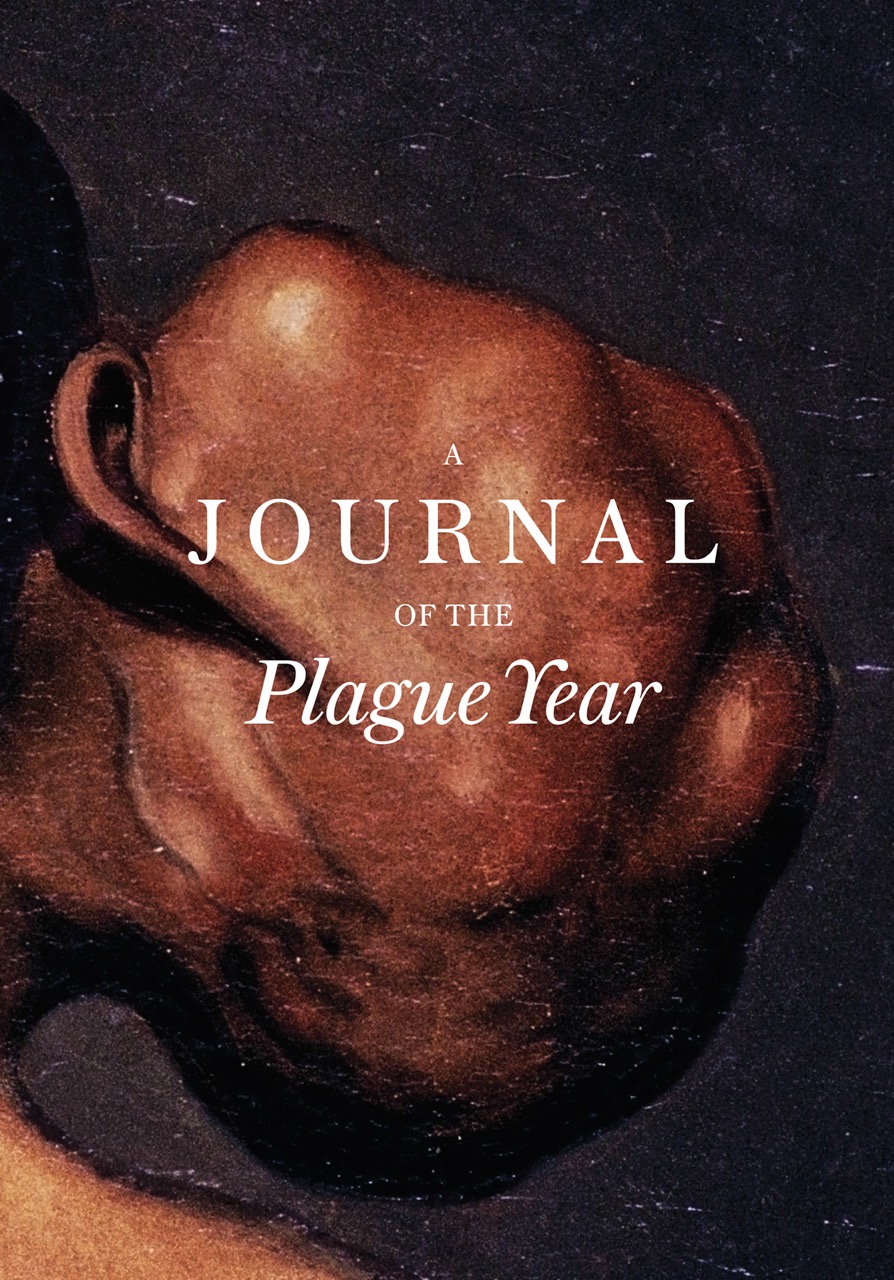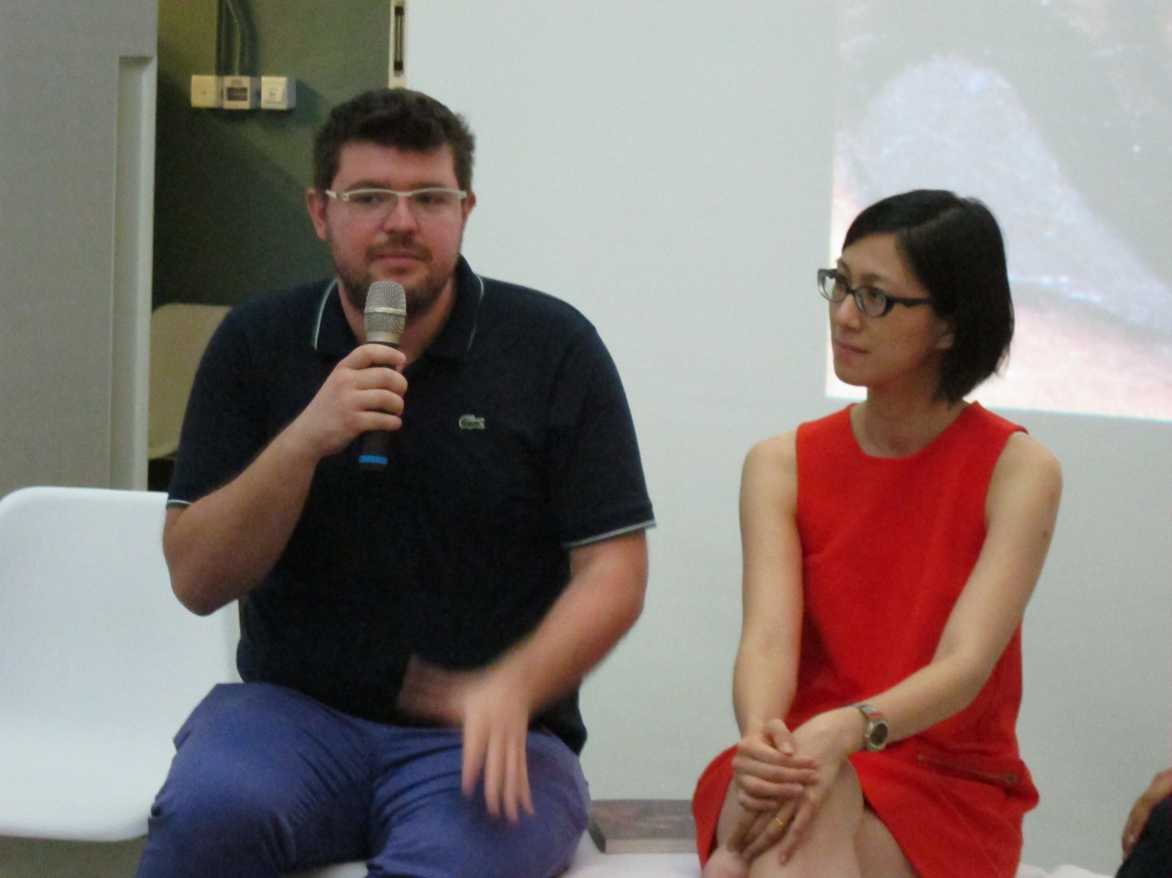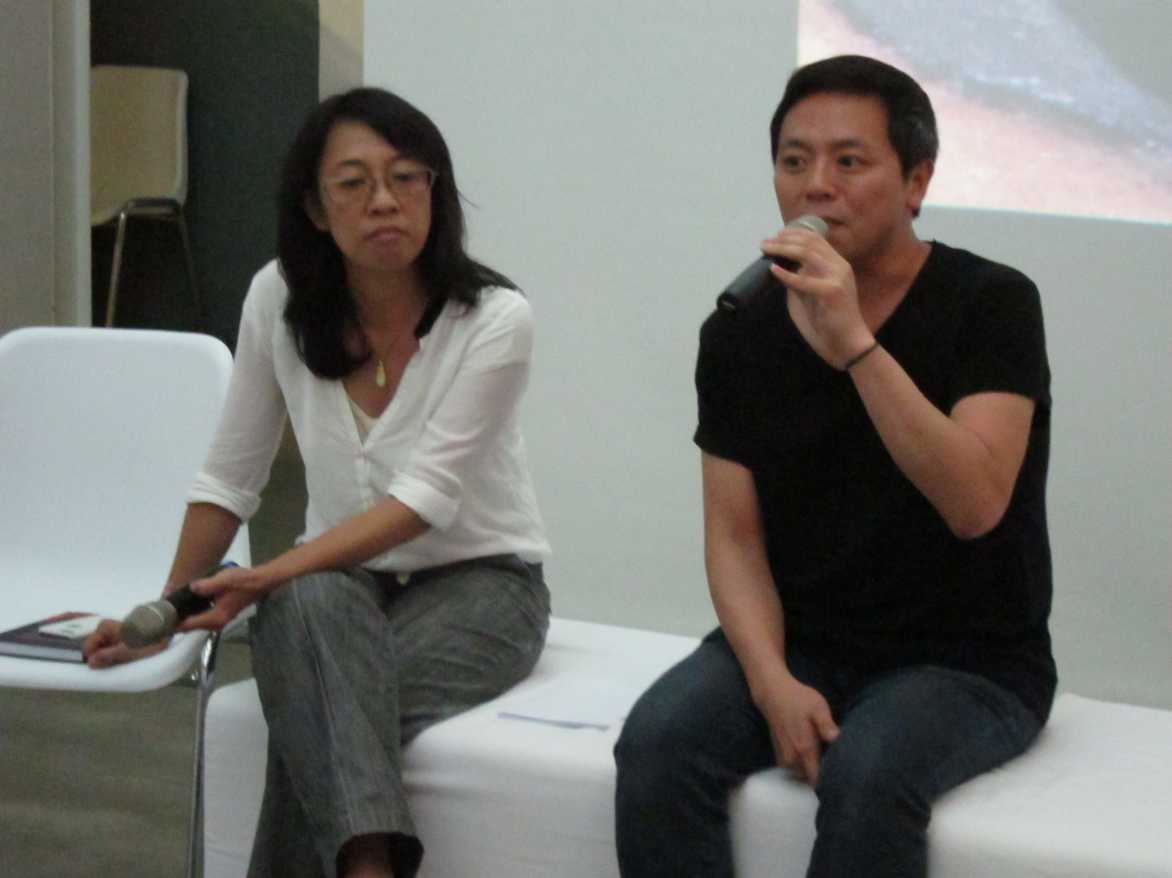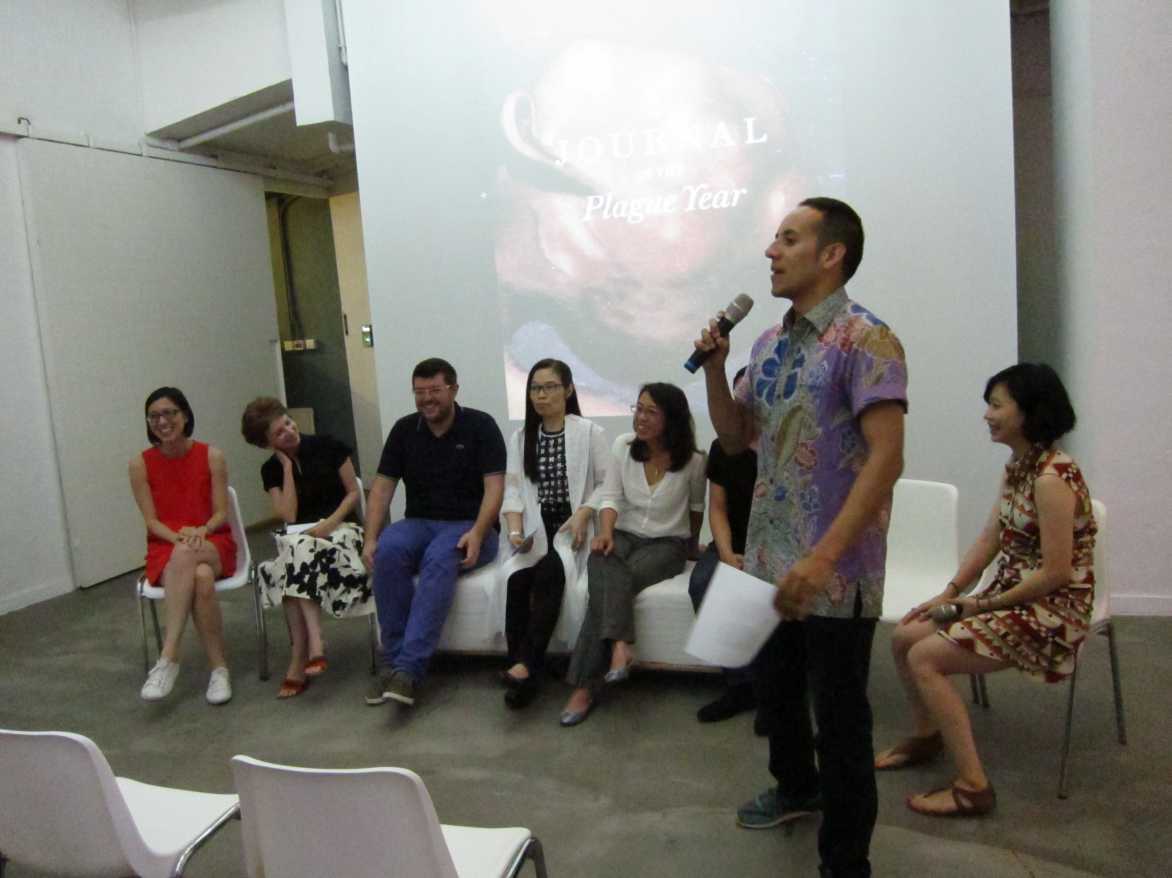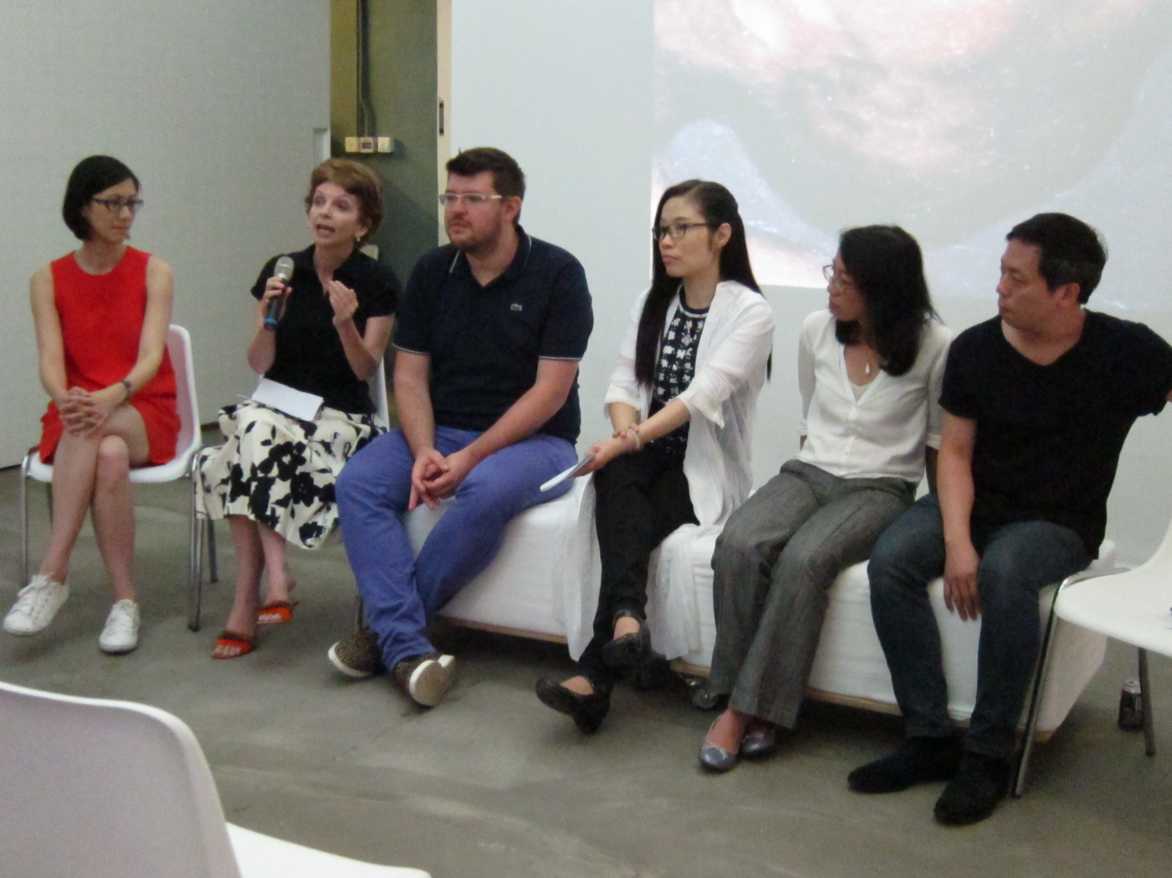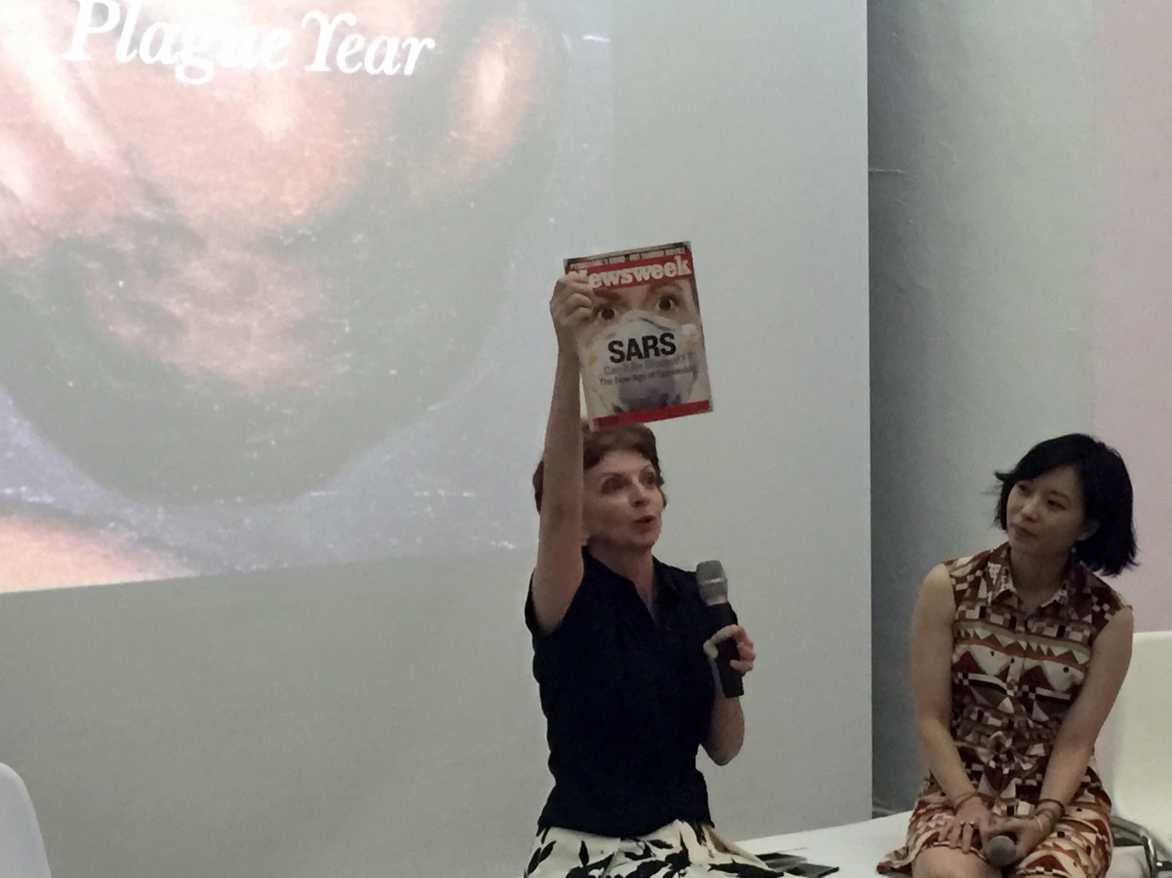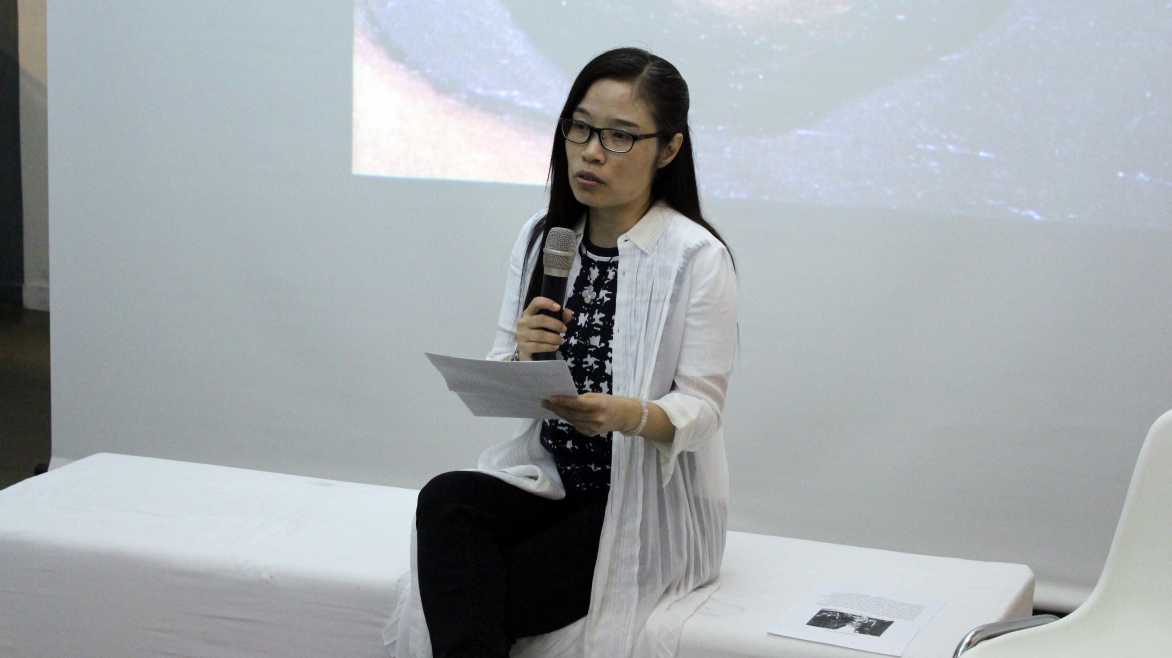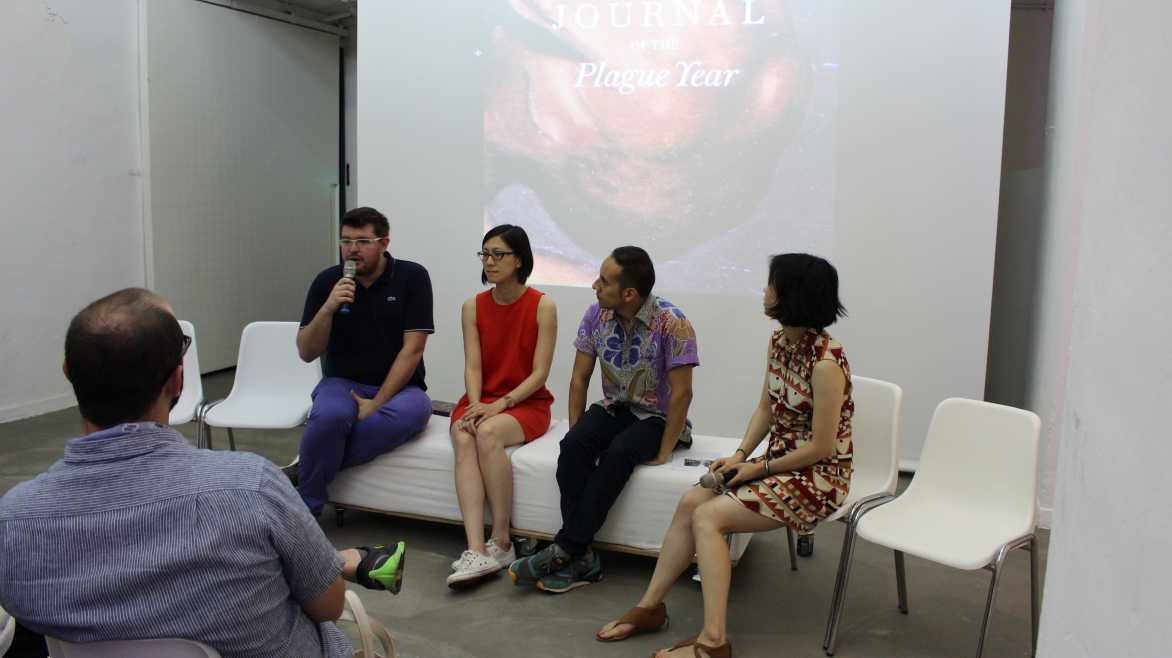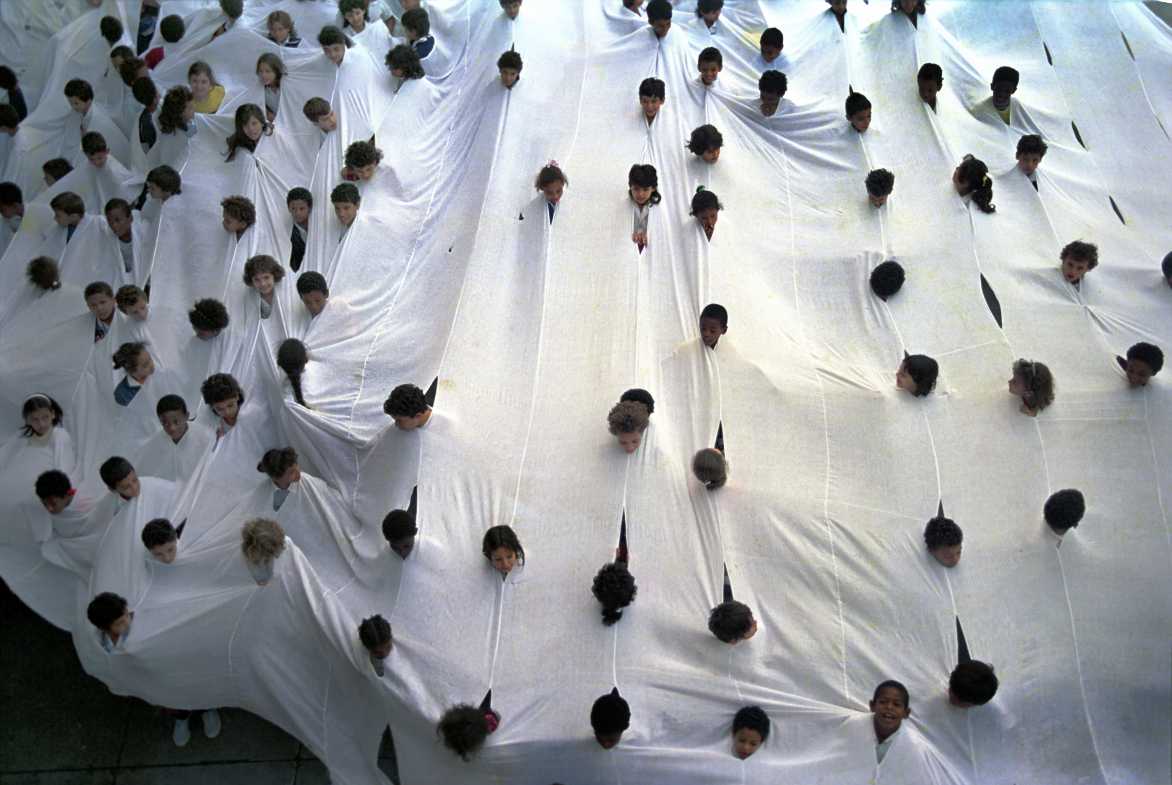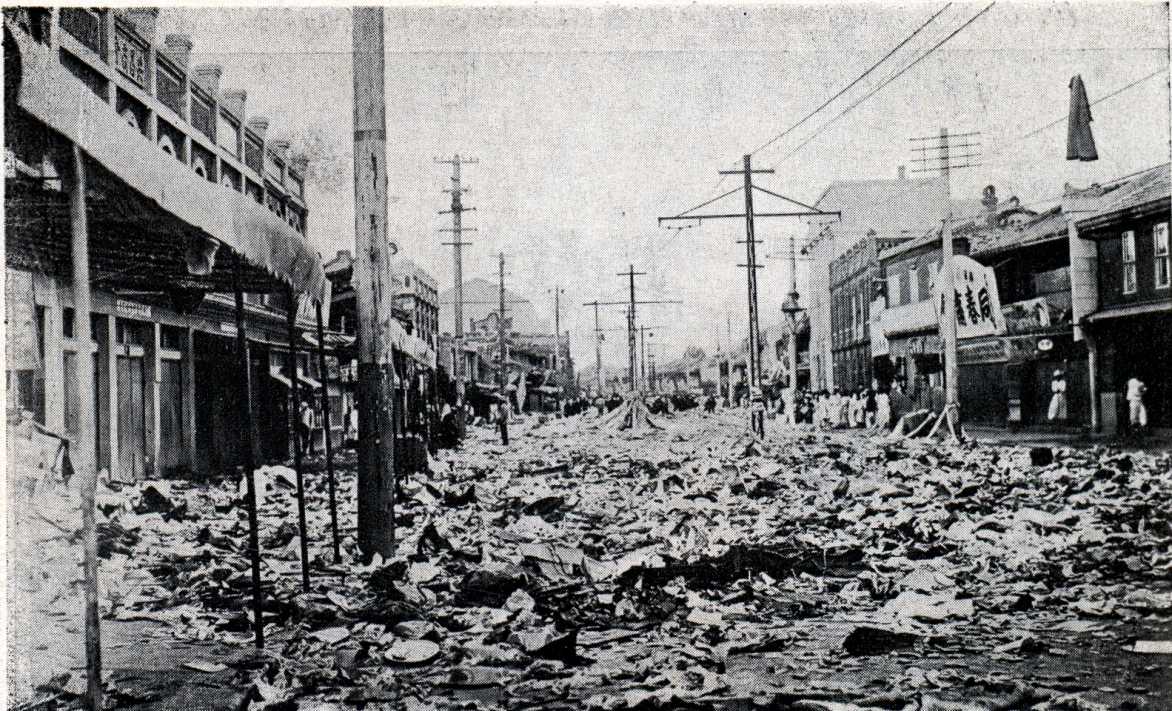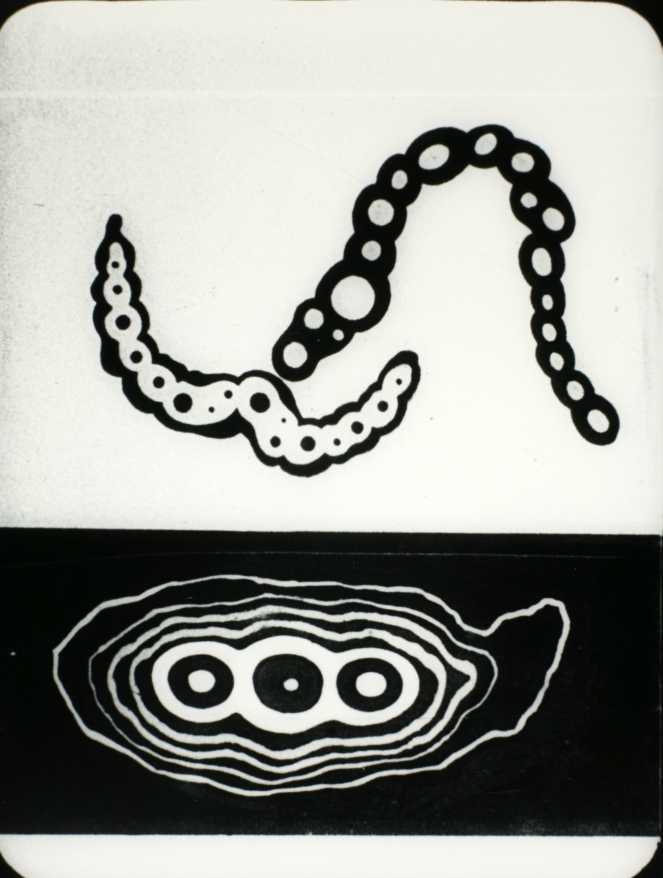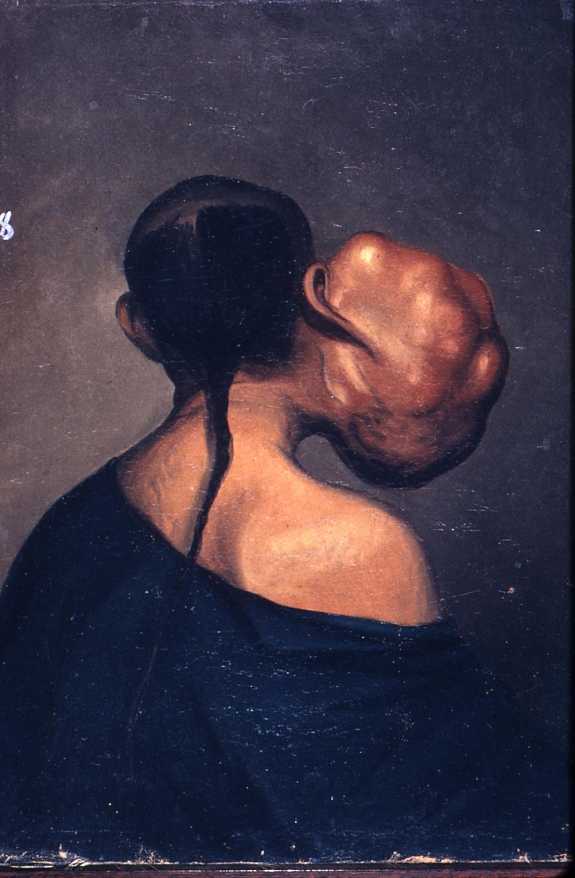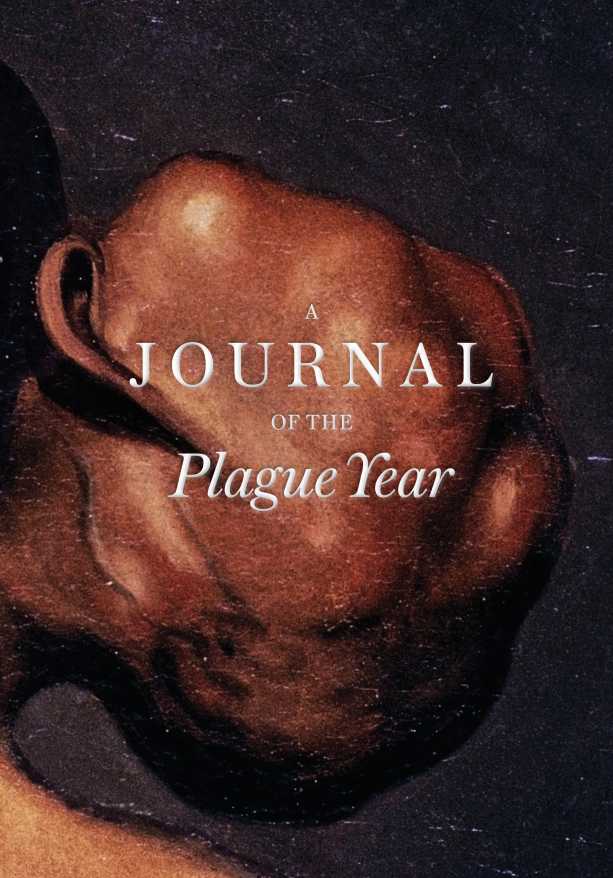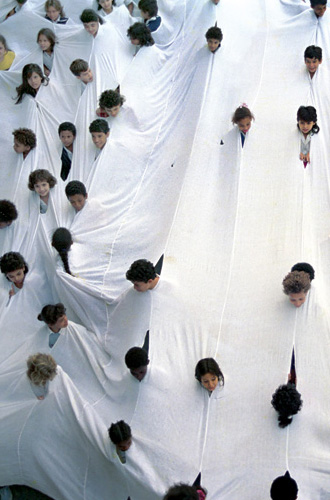
Para Site is pleased to announce a talks programme accompanying the Hong Kong launch of the publication A Journal of the Plague Year. The evening will feature an introduction by the editors followed by talks by contributors and artists . The publication, co-published with Sternberg Press and designed by Project Projects, New York, is based on the highly acclaimed exhibition A Journal of the Plague Year. Fear, Ghosts, Rebels. SARS, Leslie and the Hong Kong history, curated by , and presented at Para Site in 2013, and subsequently at TheCube Project Space in Taipei, Arko Art Center in Seoul and Kadist Art Foundation and The Lab in San Francisco.
A Journal of the Plague Year critically analyzes historical and contemporary imaginations and politics of fear in the face of disease and the specter of contamination in society and culture. Scholars, artists, novelists, and journalists depart from Hong Kong’s history of epidemic—the most recent being the SARS outbreak of 2003, shortly followed by the tragic death of pan-Asian pop icon and tackle the galvanizing power and the varied perceptions of contagion in the context of lingering histories, myths, anxieties, and memories across geographies. The essay by introduces the many layers and tentacles of the project. The disappearance of the perished and appearance of ghostly spaces are represented in the poetic storytelling of s Atlas: The Archaeology of an Imaginary City, while excerpts from literary masterpiece, City of the Queen: A Novel of Colonial Hong Kong, vividly portray the interwoven social relations and colonial structures during the time of plague. Artist contributes an exposé on disease, race, purity, and cleansing; writer and curator departs from the stereotypical iconography for Chinese immigrants appearing in the print media of the 1910s in California, in an essay about yellow peril and artist ’s recent works exploring the recurrent archetypes of Chinese and Asian identities in Hollywood films; artist and writer discuss their personal memories of how protests, linked to the aftermath of SARS, transformed their ways of being in the world; ’s humorous dramatic script The Phantom Mask visits the political cover ups and the political mood of parts of Hong Kong society at the time of the SARS crisis; journalist undertakes a deep analysis on the rhetoric of fear caused by the handling of the epidemic; Taiwanese film and art critic explores the Anti-Chinese rhetoric in the public sphere of Hong Kong through an extensive reading of an installation by ; cultural theorist discusses the way in which the roles that played reflected, and arguably enhanced, the versatility of the city’s identity over the past decades, before and after the Handover; Chinese cultural studies scholar explores how epidemics and diseases like SARS and Ebola have been cast in Hong Kong cinema; and a detailed contextual introduction of five historic performances offers models of resistance and empowerment.
The publication will be available for purchase at the launch event for a special price of 250 HKD and sold at major art bookstores in Hong Kong, internationally, and online.
The event is kindly hosted by Connecting Space Hong Kong.

